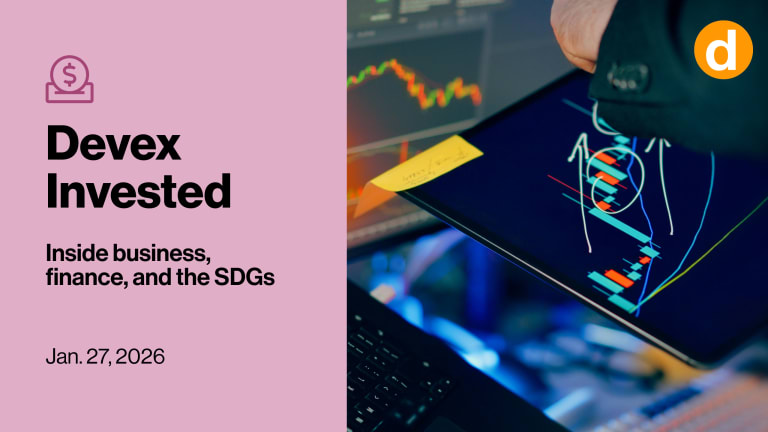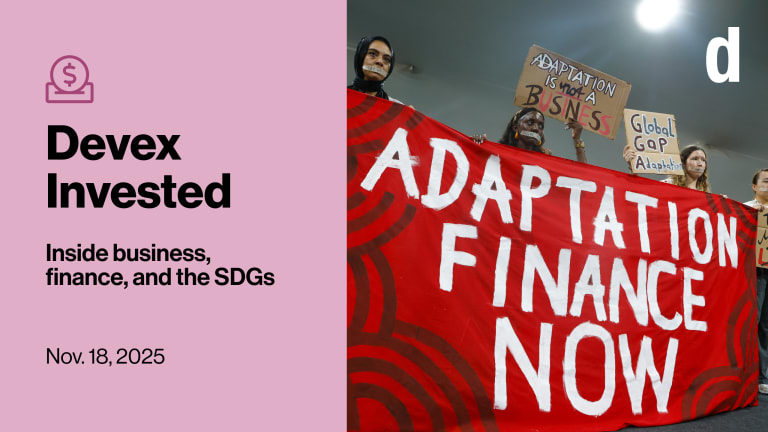The assessment of where things stand on both the United Nations Sustainable Development Goals and the growing climate crisis was a bit like New York’s weather on Monday — rather grim.
I’m particularly reflective this whirlwind week around the U.N. General Assembly’s high-level meetings this year — be it the fact that it’s a moment of global reckoning on the SDGs, or that I’ve just marked my 10-year anniversary at Devex covering these issues.
I’ve been thinking back to a piece I wrote in 2015 about how the private sector had pushed for a seat at the table with the SDGs. This week, one thing I’ll be watching as I head to the Clinton Global Initiative, Bloomberg Transition Finance Action Forum, High-Level Dialogue on Financing for Development, and more is whether the companies and financiers have stepped up in the years since — and if so, how.








